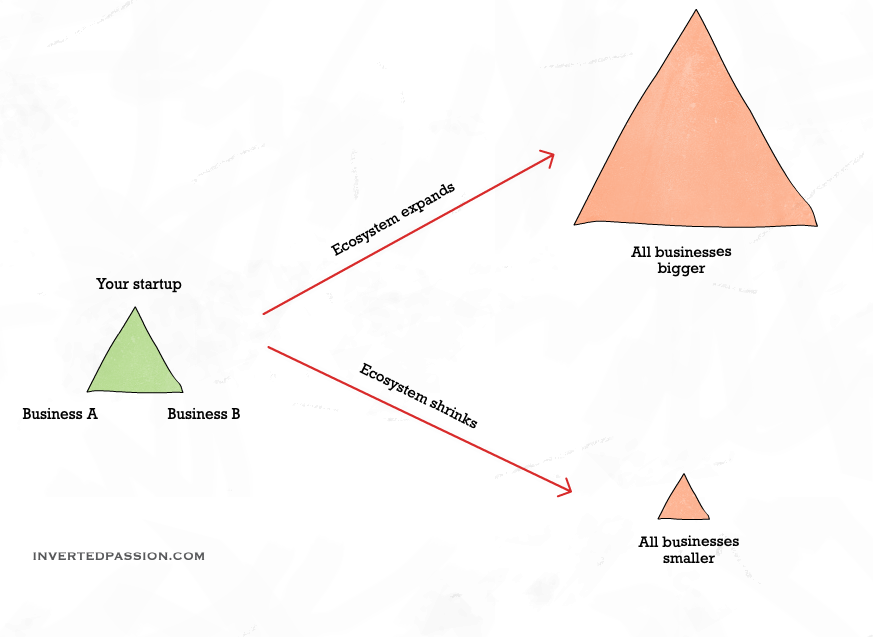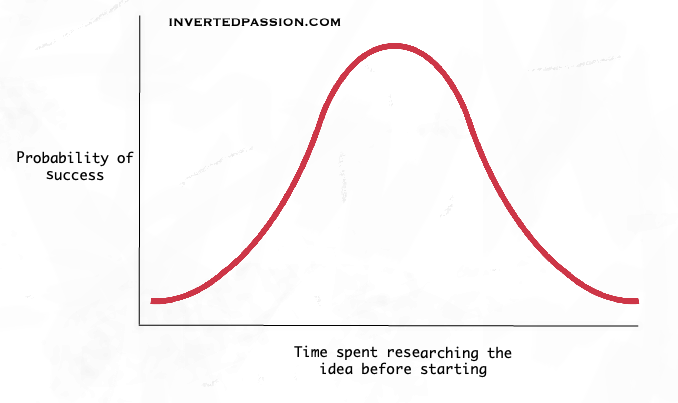
1/ All startups live in an ecosystem where different businesses directly or indirectly support one another.
e.g in the case of the automotive industry, the ecosystem consists of car manufacturers, parts manufacturers, petrol stations, service centers, car insurance companies.
e.g in the case of the automotive industry, the ecosystem consists of car manufacturers, parts manufacturers, petrol stations, service centers, car insurance companies.
2/ All of them mutually support the entire ecosystem, which means the growth or decline of one business will directly impact all other businesses.
3/ Ecosystems are not always as easy to spot as the automotive industry.
Often they are hidden and only apparent in retrospect.
Often they are hidden and only apparent in retrospect.
4/ For example, smartphones have become one of the biggest industries because a self-supporting ecosystem has emerged around it.
5/ Without smartphones, many useful apps like Uber or Google Maps wouldn’t have been possible, but without such apps, smartphones would have limited use and likely wouldn't be as big as it is today.
6/ While the natural urge for entrepreneurs is to capture maximum value for themselves, but that often gets them stuck into local maxima.
For truly maximizing value, the entrepreneur needs to push for the growth of the entire ecosystem (and not just her own company).
For truly maximizing value, the entrepreneur needs to push for the growth of the entire ecosystem (and not just her own company).
7/ Microsoft early on understood the usefulness of growing an ecosystem.
They knew that Windows will only become a de facto operating system for PCs if there are enough useful 3rd party apps.
They knew that Windows will only become a de facto operating system for PCs if there are enough useful 3rd party apps.
8/ So in order to kickstart a developer ecosystem, they consistently tracked the amount of revenue going to non-Microsoft apps because of Windows.
As non-Microsoft apps and games became popular, they drove the adoption of Windows too.
As non-Microsoft apps and games became popular, they drove the adoption of Windows too.
9/ Identifying the right ecosystem that’s poised to grow is a great way to increase the odds of success.
The key is to identify and establish tight partnerships where everyone (including the customer) benefits as the ecosystem grows.
The key is to identify and establish tight partnerships where everyone (including the customer) benefits as the ecosystem grows.
10/ However, in some cases, an ecosystem can be hard to kickstart.
Electric cars even today struggle because of the lack of an adequate ecosystem.
Though, through persistent efforts by the ecosystem (such as standardization of charging ports), this will change in the future.
Electric cars even today struggle because of the lack of an adequate ecosystem.
Though, through persistent efforts by the ecosystem (such as standardization of charging ports), this will change in the future.
11/ A growing ecosystem lifts all companies that belong to it, but a declining one punishes even the best-run companies.
An example of a declining ecosystem today is the publishing industry.
An example of a declining ecosystem today is the publishing industry.
12/ People are increasingly consuming news and information on the Internet and they expect it to be free and without ads.
This shift in consumer expectations has put the entire business model of traditional publishing companies in jeopardy.
This shift in consumer expectations has put the entire business model of traditional publishing companies in jeopardy.
13/ But because there’s an ecosystem around the publishing industry, not just newspapers but hundreds of other businesses are also impacted.
Think paper industry, the non-digital ad industry, and colleges that teach journalism.
They're in decline too.
Think paper industry, the non-digital ad industry, and colleges that teach journalism.
They're in decline too.
14/ Also, it’s important to get the timing to enter into an ecosystem right.
Enter too early and the ecosystem might be under-developed.
Enter too late and the ecosystem itself might be in decline.
invertedpassion.com/dont-be-a-firs…
Enter too early and the ecosystem might be under-developed.
Enter too late and the ecosystem itself might be in decline.
invertedpassion.com/dont-be-a-firs…
15/ 🧠
Remember: your startup belongs to an ecosystem and to maximize your startup's potential, make sure you grow the ecosystem too.
Remember: your startup belongs to an ecosystem and to maximize your startup's potential, make sure you grow the ecosystem too.
17/ I'm posting ~1 new mental model for entrepreneurs every week.
Here's the entire list of 60+ mental models that I'll cover in a year or so: invertedpassion.com/free-book-ment…
Make sure you sign up for email updates on the book page.
Here's the entire list of 60+ mental models that I'll cover in a year or so: invertedpassion.com/free-book-ment…
Make sure you sign up for email updates on the book page.
18/ Previous mental model here:
https://twitter.com/paraschopra/status/1376401666212237318
• • •
Missing some Tweet in this thread? You can try to
force a refresh











